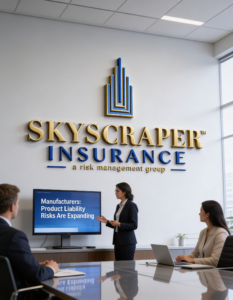Lawyers say these six insurers denied business interruption claims filed by thousands of U.S.-based small businesses.
Four law firms have filed class actions against six different insurers, including underwriters for Lloyd’s of London, alleging they denied business interruption claims filed by thousands of small businesses across the country.
In six separate lawsuits filed in federal courts across the country, Chicago’s DiCello Levitt Gutzler and The Lanier Law Firm in Houston, along with two other law firms, alleged the insurers rejected special property coverage insurance claims made by small businesses impacted by mandated closures over COVID-19.
The lead plaintiffs include La Luz Ultralounge, a restaurant and nightclub in Bonita, California, and Nick’s New Haven Style Pizzeria & Bar, a Florida chain with locations in Coral Springs and Boca Raton.
“Businesses nationwide have, for years, purchased expensive insurance policies to protect them from losses exactly like those they are currently enduring,” said Adam Levitt, a partner at DiCello Levitt Gutzler. “For insurers to now tell them, in the most challenging of times, that the joke was on them and their policies were worthless, is unethical and abhorrent.”
Mark Lanier, founder of The Lanier Law Firm, called the breach-of-contract lawsuits “a straightforward issue about honoring their agreements. As our nation emerges from this horrific pandemic, businesses of all sizes will be critical to restarting the economy. In playing their usual claim-denial games, these insurers are threatening the welfare of not only small-business owners and their families, but the entire U.S. economy.”
Other firms filing the suits were Burns Bowen Bair in Madison, Wisconsin, and Daniels & Tredennick in Houston. The firms filed the class actions in Texas, New York, California, Wisconsin, Oregon and Ohio.
Representatives of Lloyd’s of London and the other insurers named in the lawsuits—Aspen American Insurance, Auto-Owners Insurance, Society Insurance, Oregon Mutual Insurance and Topa Insurance Company—did not respond to requests for comment.
The lawsuits allege that the plaintiffs purchased all-risk special property insurance coverage for business interruption losses. The policies, which included losses of “business income,” or due to the actions of a “civil authority,” plus any “extra expense,” either included viruses or illnesses in their coverage, or failed to state exclusions for such damage.
The other plaintiffs include a sourdough bakery in Madison, Wisconsin; a tavern chain in Minnesota; a restaurant in Portland, Oregon; a dentist in Minneapolis; and a bridal shop in Mentor, Ohio.









